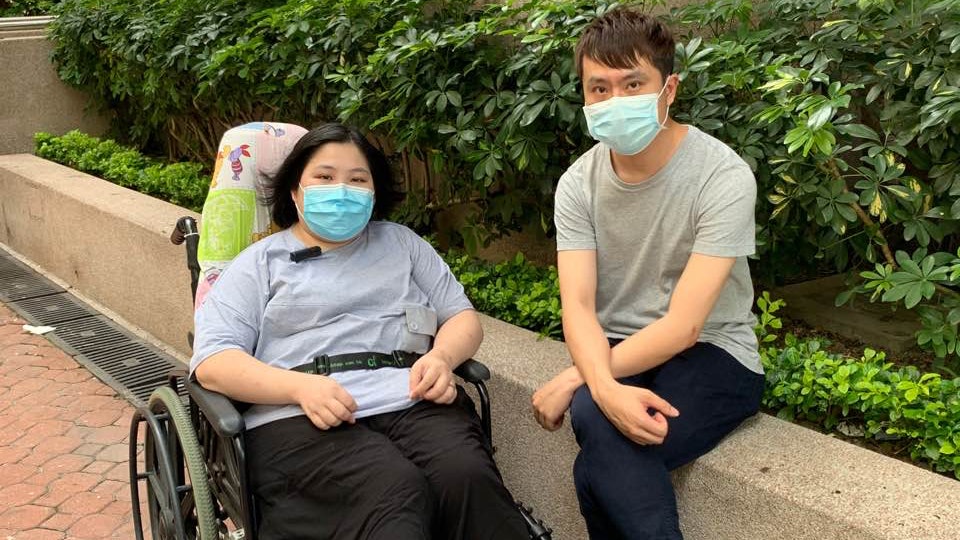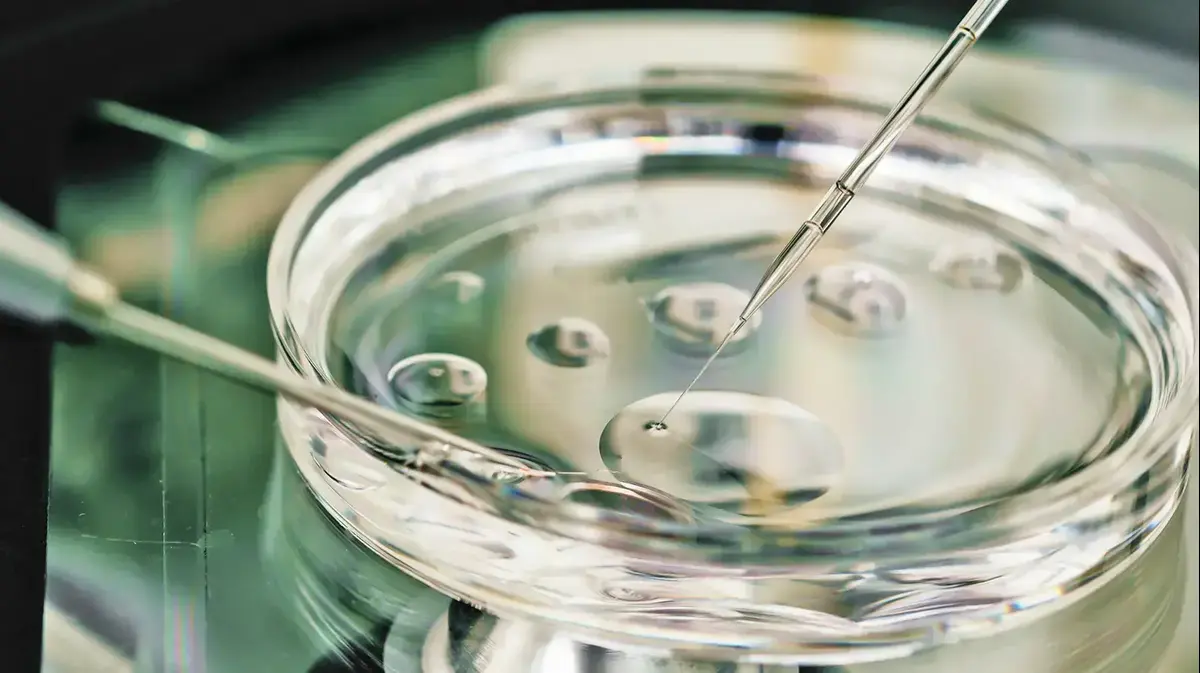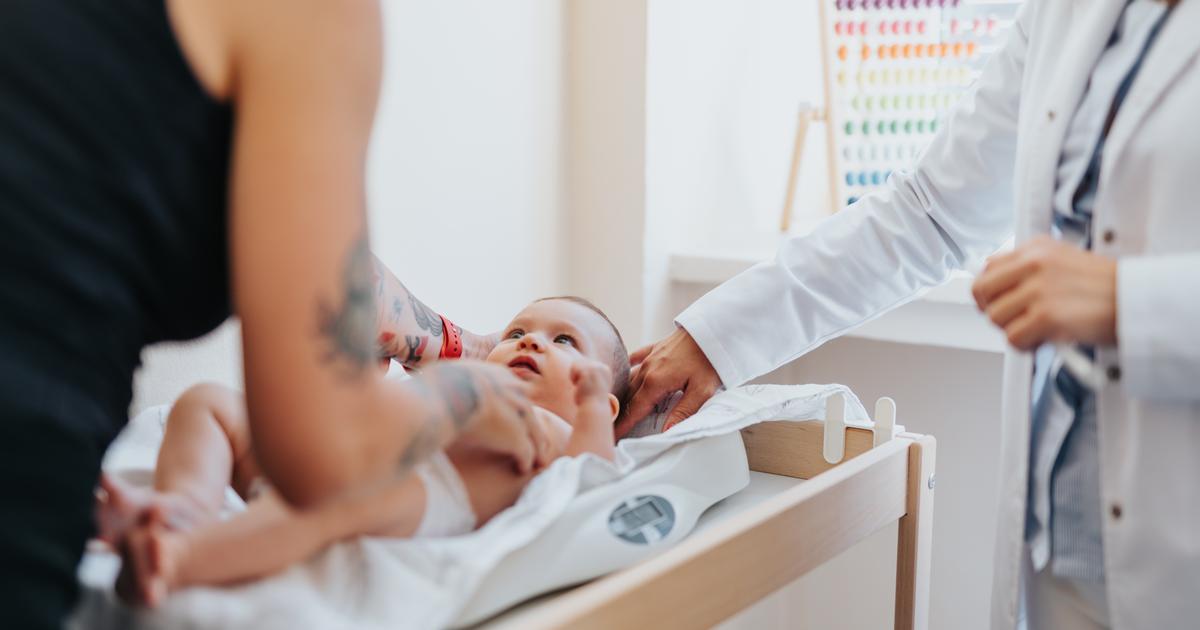Political situation
Written by: Luo Jiaqing
2020-05-25 01:13
Date of last update: 2020-05-25 01:13Many patients with rare diseases have been actively seeking drug funding from the Hong Kong government for many years. However, Hong Kong has not yet defined a rare disease, nor has it seen a policy for rare diseases. Patients can only struggle to survive. Yao Shumin (Happy), a 31-year-old patient, was found to have ankylosing spondylitis 10 years ago. The condition caused her right foot to bend inward and could not walk. She has tried different drugs for many years, but she still has no cause and treatment.
Until the beginning of this year, Happy's condition deteriorated and she couldn't even move her left foot. The doctor suggested that she try to inject the biological agent "sukinumab". For her, this was the last glimmer of light. However, when she applied for funding from the Samaritan Fund, which provided medical assistance, she was rejected because she had previously injected 5 different biological agents and did not improve. A 5,000 yuan biological preparation may be insignificant to others, but it is a heavy burden to Happy. Happy, who has been optimistic about his illness, can only hope for a miracle now.
Kwun Jun-woo, a member of the Legislative Council who has always been concerned about the issue of rare diseases, said that the Samaritan Fund was originally a patient's hope, but the fund set a very high threshold for economic review. Kwong Jun-yu emphasized that a 5,000 yuan biological preparation is a heavy burden on the grassroots family. He hopes that Samaria and other funds can consider providing assistance to Happy. He also wrote to the HA to request follow-up cases earlier.
Kwon Jun Yu (right) said that a 5,000 yuan biological preparation is a very heavy burden on grassroots families, and hopes that Samaria and other funds can consider providing assistance to Happy. (Photo by Luo Jiaqing)
Happy was diagnosed with ankylosing spondylitis in 2010. Later, he was found to have dysfunction, and his right foot appeared incurved, unable to walk. However, the doctor has not been able to find out the cause of the diarrhea. Happy has tried different drugs for many years and continues to receive physical therapy, but unfortunately his body has not improved. Happy frankly said that physical therapy was very difficult for her. Every time she did "feel all muscles get sunbathing", but she always insisted, because she was convinced that she only saw hope.
Unfortunately, destiny did not care for this strong girl. In December last year, Happy was sent to hospital because of limb cramps. Unfortunately, his body deteriorated, his left foot failed to move, and even the "crossing bed" movement could not be completed. The doctor once suggested that the mother should take care of Happy 24 hours, but the mother needs to work to meet the family expenses. Eventually Happy suggested to stay in the institution.
Happy was diagnosed with ankylosing spondylitis in 2010. Later, he was found to have dysfunction, and his right foot appeared incurved, unable to walk. However, the doctor has not been able to find out the cause of the diarrhea. (Photo by Luo Jiaqing)
Hospitalization does not want her mother to worry about the staff encouraging her to regain her interest in painting
The decision of the hospitalization room is not easy for Happy. "There is no choice but you can choose if you want." She recalled that a social worker had asked why she was hospitalized, and Happy responded without thinking to her mother who had been taking care of her for many years. I do n’t want her to work harder and worry too much for me. "
Happy was even more suspicious of himself. Fortunately, hospital staff encouraged her to regain her interest in painting. Happy once confessed to the staff that he "wasn't even twitching with his hand even if he held the pen," and he was not confident in drawing. To encourage her, the staff wrapped up the brush and gave it to Happy so that she could pick it up more easily. Happy said bluntly this time that she "recovered herself slowly and knew what she was doing."
Happy regained his interest in painting in the courtyard, and when he was inspired he would paint. (Photo by Luo Jiaqing)
Injecting "sukinumumab" biologics into the final hope that he will get aid from the fund
At present, Happy's only hope is to inject the remaining "sukinumumab" biological agent from the self-funded drugs covered by the Samaritan Fund and the Care Fund Fund. Happy started applying for the funding of the Samaritan Fund in November 2014 to purchase biologic injections for the treatment of ankylosing spondylitis. She had injected five different biologics, but no effect.
Until this year, the doctor said that she could try the biological preparation of "secukinumab". After one year of injection to observe the situation, the doctor can give her two injections for free, but she will need to pay for it afterwards. Happy hopes to apply for the Samaritan Fund, but the fund says that the five biological agents that she injected earlier have not been effective. She thinks that she has not reached the specified score and will not give a green light for the application. A biological preparation of 5,000 yuan may be insignificant for others, but for Happy who comes from a grassroots family, it can be described as a heavier weight. Happy hopes that the Samaritan Fund or other funds can provide funding so that she can continue to receive treatment and seize this vitality.
Kwun Chun-woo, a member of the Legislative Council who has always been concerned about the issue of rare diseases, believes that the government ’s policy to support rare patients should be reviewed in principle. (Photo by Luo Jiaqing)
Kwong Jun Yu: The government ’s policy to support rare patients should be reviewed in principle
Kwun Jun-woo, a Legislative Council member who has been assisting Happy, said that Happy can now try to inject "secukinumab" biologics at the beginning of dawn, but she could not apply because the earlier injection of the other five biologics was not effective. Kuang Junyu emphasized that a 5,000 yuan biological preparation is a heavy burden on the grassroots families, and hopes that Samaria and other funds can consider providing assistance to Happy. If there is no funding, even this line of dawn will be lost.
Kuang Junyu said that at present, the Samaritan Fund is mainly used to provide funding for patients to buy drugs, but the fund sets a very high threshold for economic review. He also pointed out that every time there is a rare patient in Hong Kong, someone will propose that the relevant drug is not in the drug roster, hoping to be included in the roster, describing the Hong Kong government as "kick and scare" and believe that the government's policy to support rare patients should be principled Review.
[Rare Diseases] Drug funding mechanism is in short supply. It is difficult for patients to take medicine on time to save medicine costs and need to drag needles
[Dare] Zhong Liqi suffers from a rare disease and remembers the death mother's teachings
【Wuhan Pneumonia】 Rare disease caregivers sigh a mask hard to find expensive masks in hard food pharmacy
HA: This biological preparation is the same type of patient that was injected earlier and is now receiving other medications
The HA said that because the four biologics that Happy received earlier from the Samaritan Fund had no significant effect on the treatment of patients, they failed to improve the condition. "Considering other biopharmaceuticals funded by the Samaritan Fund and Miss Yao The biologics used in the same category are believed to have a limited effect on improving the condition of Miss Yao. After measuring the treatment effect, the side effects of the drug and the clinical condition of the patient, the doctor recommended stopping the injection of the biologically funded Samaritan Fund Preparations. "The Hospital Authority stated that the patient is currently receiving other medications in the hospital. The hospital will continue to monitor the patient's condition closely and provide her with appropriate treatment.
The HA said that there is an established mechanism for regularly evaluating new drugs and reviewing the scope of funding for drug lists and safety nets, including formulating relevant clinical treatment guidelines for drugs included in the drug lists and safety nets. The process follows the principles of medicine, rational use of public resources, target grants, opportunity cost considerations, and promotion of patient selection, and considers the safety, efficacy, cost-effectiveness, and other relevant factors of drugs. The current Samaritan Fund clinical guidelines for ankylosing spondylitis drugs are also formulated based on the above principles and considerations.
Kuang Junyu, a rare disease









